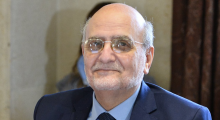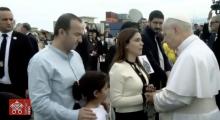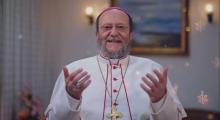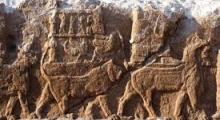Issued by the Catholic Center for Studies and Media - Jordan. Editor-in-chief Fr. Rif'at Bader - موقع أبونا abouna.org
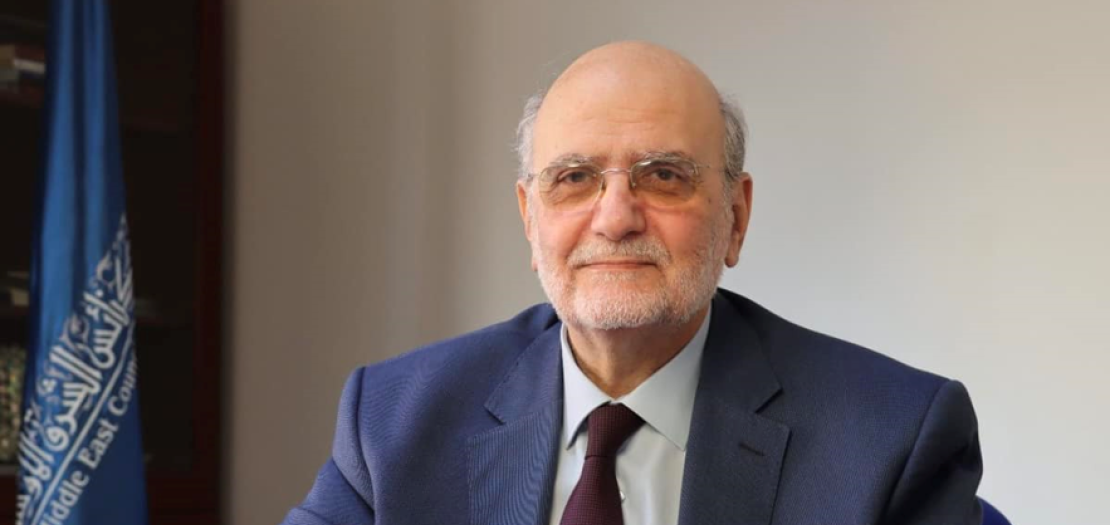
Following is the text of the address delivered by Secretary General of the Middle East Council of Churches (MECC) Professor Michel Abs in the Workshop on the Humanitarian–Development–Peace Nexus- Organized by MECC in Jordan between 15 and 16 September 2025:
Since ancient times, our region, what some call the Middle East, but which we call the Antiochian East, or the Arab East, has been in constant turmoil with no apparent end. From before recorded history, this land has suffered invasions and waves of displaced peoples, turning it into a highly diverse, and at times discordant, mosaic. This has deeply affected the quality of life, human and cultural relations, and inevitably, politics.
Our region, often labeled the “cradle of civilization” or the “cradle of Christianity,” has faced crisis after crisis, differing in scope and cause, but always with profound consequences. It is nearly impossible to find another place with such ancient heritage and diversity of religions and ethnicities, which, while rich, have often cast a shadow over people’s lives, aspirations, and hopes.
This is a region of conflicts par excellence, where international and local rivalries are settled, leaving it perpetually fragile, dependent on scraps of global agreements, with destructive impacts on all aspects of its peoples’ lives.
It was in such a setting that our institution – the MECC- was founded, an institution of ecumenical faith and values, created to bring Christians closer to one another, and to foster harmony with their wider communities, after centuries of disputes and wars of every kind. The visionary founders, more than five decades ago, were fully aware of the psychological and political climate of this region and set objectives in the founding charter that directly addressed its troubled reality. These principles shaped all the council’s activities and programs positively.
The Middle East Council of Churches (MECC) was at the forefront of tending the wounds of the Palestinian people, exiled from their land by the crimes of international politics, dispossessed in favor of those with no rightful claim, neither divine nor human.
MECC was also first to aid the Lebanese during the brutal civil war that raged for fifteen years and, like the war in Palestine, still continues in different forms to this day.
MECC rushed to help Iraq, once a nation of research and innovation, but reduced by the crimes of international interests and policies to a wounded, slaughtered people.
MECC also supported Syria when it was torn apart by internal wars, its people displaced, and its economy destroyed after once being a symbol of self-sufficiency and advanced productivity.
This roaming death, dealt blindly left and right, strikes societies offered as victims on the altar of deep-state interests and the bloodsuckers of oppressed nations.
In all these relief and rehabilitation services, the MECC stood as a support for people, to the extent of its means, serving all without distinction, in line with its founding charter and practical policies. It became a pure model of aid without discrimination, with results visible in reports and statistics from the war in Palestine to the war in Syria today.
The MECC acted in accordance with the teachings of the Lord, who became incarnate for us, shed His blood, and gave His life for our endless sins. Like the Good Samaritan, He did not ask the wounded his identity but immediately went to his aid.
In other fields, rights, social and cultural issues, MECC was a pioneer in raising concerns for women, children, families, and human rights, especially interfaith and intercommunal dialogue. In this context, it co-founded Lebanon’s Islamic Christian National Dialogue Committee and was part of the Arab Working Group for Muslim-Christian Dialogue.
In all its developmental, cultural, and dialogical activities, the MECC excluded no segment of society. In its ecumenical vision, all humanity are children of God, honored as created in His image and likeness.
The Council’s credibility across communities stems from its long history of dialogue that brings people closer together, and it is proof of the success of its non-discriminatory approach. From its beginnings and into the future, MECC has been, and will remain, an honest and faithful partner to all its people, of every affiliation. Its credibility, earned through its stances and actions, is a model all institutions should follow.
With its transparency, honesty, expertise, and experience, MECC is a haven for those of goodwill seeking a better life, an oasis for peacebuilding.
For the MECC, dialogue is not a temporary tool to reach a goal but a deeply rooted culture, woven into our daily lives and relationships. It is a core value of the institution, uniting Christians with their families and loved ones in society, for whom we give all we can so that they may live better lives, as the Lord intended.


